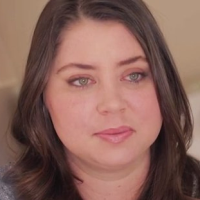Despite Strong State Support, Right-to-Die Bill Can’t Get Out of Assembly Committee
 Brittany Maynard
Brittany Maynard
Last time they were asked (pdf), seven out of 10 Californians wanted a right-to-die law in the state. Five Latino Democrats on the Assembly Health Committee, presently, do not.
That’s enough to put a hold on Senate Bill 128 for now and maybe the rest of the year. The End of Life Option Act, which passed on a 23-15 vote in the Senate, needed 10 votes in the 19-member Assembly committee to advance and minority Republicans weren’t going to help.
“I’m uncomfortable, based on the experiences of my mom who died of terminal illness,” one of the “no” votes, Lorena Gonzalez (D-San Diego), said in a statement. “I’m uncomfortable based on the impact this will have on poor people in a health care system that cuts corners in the name of costs, and I’m uncomfortable with the way suicide could be viewed across society, not just the terminally ill.”
Many of those arguments are made by the Catholic Church, a principal opponent of the legislation. The bill was also opposed by “Californians Against Assisted Suicide,” a self-described “coalition of disability rights, healthcare, civil rights and patient advocacy organizations.”
A Gallup Poll in 2014 found that 69% of Americans support laws allowing doctors to “end the patient's life by some painless means” if the person has an incurable disease. A phone survey (pdf) by Goodwin Simon Strategic Research last month found that same percentage of Californians support the End of Life Option Act.
Seventy percent of Latinos and 60% of Catholics favored it. Only 24% of Californians opposed it.
The legislation, modeled after Oregon’s law, would require two California doctors to certify that a patient is mentally competent and has six months or less to live before prescribing lethal drugs for them. More than 750 people have availed themselves of Oregon’s law since 1997, including out-of-staters. Oregon has a six-month residency requirement that makes traveling to the state impossible for dying patients lacking time and money.
Bay Area brain cancer patient Brittany Maynard captured worldwide attention when she moved to Oregon last year and documented the countdown to her assisted death on November 1. Before she died, the 29-year-old newlywed recorded videos for California lawmakers pleading that they pass right-to-die legislation.
That helped jumpstart the campaign for the bill, which was introduced in January, and seemed to gain momentum when the California Medical Association (CMA) became the first state medical organization in the nation to not oppose physician-assisted end-of-life legislation.
Right-to-die legislation has sputtered in the Legislature on multiple occasions since voters rejected it at the polls by a margin of 54.1% to 45.9% in 1992. Five other states have authorized aid-in-dying either at the ballot box (Oregon and Washington), through the legislature (Vermont) or via the courts (Montana and New Mexico).
–Ken Broder
To Learn More:
Aid-in-Dying Bill Withdrawn Due to Lack of Support (by Melody Gutierrez, San Francisco Chronicle)
SB 128, California's Right-to-Die Bill, Is Dead for the Year (by Jessica Calefati, San Jose Mercury News)
California Right-to-Die Bill Stalls with Catholics Opposed (by Fenit Nirappil, Associated Press)
California Aid-in-Dying Bill Shelved for the Year (by Patrick McGreevy, Los Angeles Times)
State Medical Assn. First in Nation to Drop Opposition to End-of-Life Legislation (by Ken Broder, AllGov California)
- Top Stories
- Controversies
- Where is the Money Going?
- California and the Nation
- Appointments and Resignations
- Unusual News
- Latest News
- California Forbids U.S. Immigration Agents from Pretending to be Police
- California Lawmakers Urged to Strip “Self-Dealing” Tax Board of Its Duties
- Big Oil’s Grip on California
- Santa Cruz Police See Homeland Security Betrayal in Use of Gang Roundup as Cover for Immigration Raid
- Oil Companies Face Deadline to Stop Polluting California Groundwater





